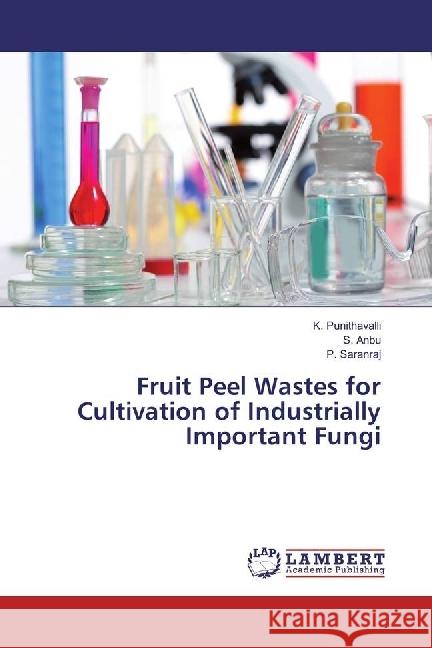Fruit Peel Wastes for Cultivation of Industrially Important Fungi » książka
Fruit Peel Wastes for Cultivation of Industrially Important Fungi
ISBN-13: 9786202198486 / Angielski / Miękka / 2017 / 64 str.
The fruit peels selected for the present study (Pine apple, Mango, Jack fruit, Yellow banana, Green banana, Sweet lime and Pomegranate) was collected from fruit shop in Tirupattur, Vellore district, Tamil Nadu, India. The collected fruit peels were shade dried, powdered with the help of mixey, packed in plastic cover and stored at room temperature. The industrially important fungal isolates viz., Aspergillus niger, Rhizopus stolonifer and Penicillium chrysogenum was isolated by Open plate technique. Identification of the fungal isolates was carried out by the routine methods i.e., (i) By Lactophenol Cotton Blue (LPCB) staining method and (ii) Plating on Sabouraud's Dextrose Agar. The effect of seven different fruit peel wastes on the qualitative and quantitative growth of industrially important fungi was studied. In quantitative analysis, the fungal inoculum added broth was incubated at room temperature for 5 days. The growth of fungi was measured in UV - vis Spectrophotometer at 580 nm during the 3rd day and 5th day. Fourier Transferred Infrared Spectrophotometer (FT-IR) analysis of fruit peels was utilized to investigate their chemical constituents and functional groups.











